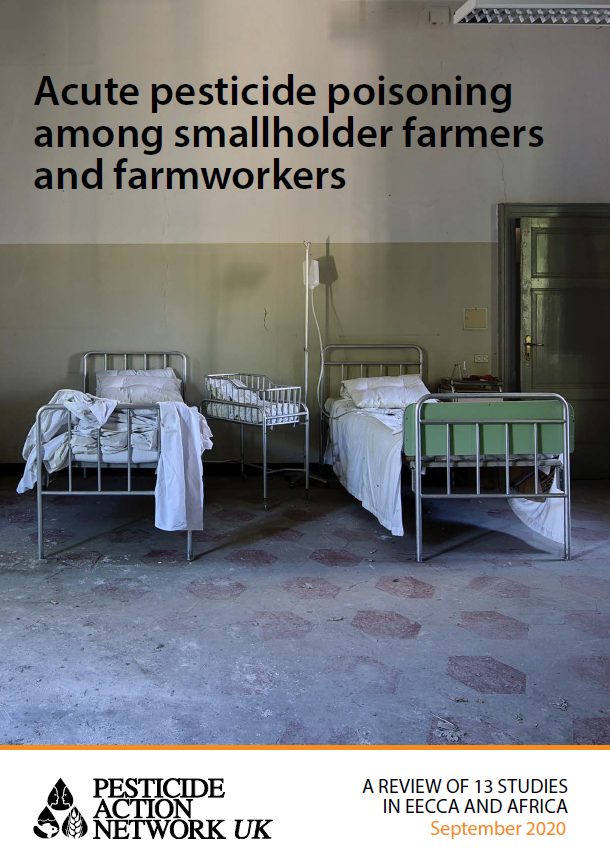Pesticide poisoning
Pesticide poisoning is a global health emergency. It is estimated that 44% of farmers and farm workers are poisoned by pesticides every year, that is 385 million people. A report presenting findings from a series of health monitoring projects conducted by PAN UK and partner organisations in 11 Low- and Middle-Income Countries (LMICs) over the past decade also supports these findings.
The figure is shocking in itself but it doesn’t include the thousands of suicides from pesticide each year. It is estimated that 14 to 16 million people worldwide have died from ingesting pesticides over the last 50 years. Also not included in the above figure is the number of people suffering from the long-term chronic health effects of pesticides.
What are the health impacts?
PAN UK is particularly concerned about the group of pesticides which are classified as ‘Highly Hazardous Pesticides’ (HHPs). According to UN Food and Agriculture Organization (FAO) and World Health Organization (WHO), these are the relatively small proportion of pesticides that present ‘particularly high levels of acute or chronic hazards to health or environment’.
Acute health effects that occur shortly after pesticide exposure include respiratory issues, eye and skin irritation, nausea, vomiting, diarrhoea, headaches, loss of consciousness, seizures and even death.
Known chronic health effects of pesticides include cancers, nervous system disorders, such as Parkinson’s disease, fertility and reproductive disorders and serious developmental disorders in children.
The majority of pesticide poisonings occur in LMICs where health care coverage is patchy and monitoring systems are inadequate. Many poisoning cases simply do not make it into official health statistics. As a result, pesticide poisoning is a hidden crisis and many policy makers fail to grasp the scale of the problem. Even where governments recognise the importance of the issue, they rarely have enough information to tackle the problem effectively.
What are we doing?
PAN UK works hard to address the information gap in pesticide poisoning. Over the years we have questioned thousands of farmers, farmworkers, and farming families in countries ranging from Georgia, Armenia, Ukraine and Kyrgyzstan to Ethiopia, Benin, Tanzania and the Caribbean about how pesticides are used and their impacts. These studies help to reveal the real life “conditions of use” in rural communities. They can uncover common routes of exposure and identify the specific pesticides responsible for poisonings – critical information to help policy makers target interventions to address the problem.
T-MAPP, a powerful new mobile app
This game-changing tool for monitoring acute pesticide poisoning is designed to support the efficient collection of information directly from farmers. It is already helping to provide new insights into the problem among cotton and vegetable farmers and workers who are suffering shocking levels of acute pesticide poisoning with very serious implications for their long-term health and livelihoods.
Families affected by pesticide poisoning
Many LMIC national authorities allow the release of highly hazardous chemicals into a largely unregulated environment. Over the years, PAN UK has witnessed countless heart-breaking stories of families directly affected by pesticide poisoning. It’s time that global, and national authorities, step up to their responsibility to monitor the impact of toxic chemicals. Urgent action should be taken to remove highly hazardous pesticides from use.
Tackling pesticide threat in Georgia
Georgia lacks a reporting mechanism for pesticide poisoning incidents. In order to better understand the scale and nature of pesticide poisoning in Georgia, it was necessary to meet with rural people and explore the circumstances, frequency and severity of incidents of pesticide poisoning. To this end, PAN UK developed new survey tools, which were tested and modified and then rolled out to 920 farmers and farm workers.

